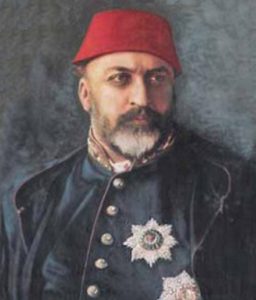The narrative of “The Prisoner Admonishes the Kings” is a profound tale that encapsulates the essence of Baha’i teachings and the overarching ethos of justice, unity, and compassion that infuses the fabric of this spiritual tradition. This story, while ostensibly simple, embodies a myriad of deeper reflections on the nature of power, the responsibilities of leadership, and the moral obligations of individuals in society.
At the core of this narrative lies the figure of its protagonist, a prisoner who, despite his confinement, wields a remarkable influence over the kings and rulers of his time. This character illustrates the paradox of power: the notion that true authority lies not merely in political might or military strength, but in the moral integrity and wisdom of an individual. This theme resonates deeply within Baha’i teachings, which emphasize that genuine leadership is predicated upon service to humanity and the cultivation of virtues rather than the pursuit of dominion.
As the story unfolds, the prisoner—revered for his sagacity—addresses the monarchs with a powerful admonishment. Such a confrontation serves as a poignant reminder of the accountability that leaders bear to their constituents. In this light, the tale critiques the prevalent tendency among rulers to prioritize personal gain and ambition over the well-being of their subjects. Baha’i teachings advocate for a paradigm shift, heralding a vision of leadership that is synonymous with justice, equity, and a steadfast commitment to the common good.
The role of the “prisoner” symbolizes not only the marginalized or oppressed but also the potential for enlightenment that resides within every individual, regardless of their circumstances. This principle aligns with the Baha’i belief in the intrinsic worth of every soul and the imperative to recognize and harness this potential for the betterment of society. Indeed, the narrative invites reflection on one of the most pressing dilemmas in contemporary governance: the disjunction between power and righteousness.
It is essential to note that the admonishments delivered by the prisoner are not merely admonitory; they encapsulate wisdom drawn from profound spiritual insights. He implores the rulers to transcend their egoistic pursuits and to consider the welfare of humanity as their paramount priority. This appeal evokes a fundamental tenet of Baha’i teachings: the practice of consultation, which is emphasized as an essential methodology for achieving collective progress and resolving societal conflicts. Leaders—and indeed all individuals—are encouraged to engage in dialogue, wherein diverse perspectives are harmoniously synthesized for the elevation of society as a whole.
Furthermore, the prisoner’s admonitions challenge the rulers to confront the moral complexities of their positions. In both historical and modern contexts, leaders are often ensnared by the intricacies of political conflict and the exigencies of power. This narrative elucidates the principle that moral courage is indispensable for effective leadership. It underscores the necessity for rulers to act with empathy and foresight, recognizing that their decisions wield significant repercussions on the lives of countless individuals.
Moreover, the story carries a rich symbolic dimension, reflecting the eternal struggle between justice and oppression, truth and falsehood, wisdom and ignorance. It evokes a universal resonance, prompting readers to contemplate the prevailing injustices within their own societies. The admonitions serve as a clarion call for individuals to take on the mantle of responsibility, urging not only rulers but all members of society to become agents of positive change. In doing so, this narrative accentuates the interconnectedness of humanity—an overarching theme in Baha’i thought.
The notion of unity threads throughout the narrative, casting a spotlight on the potential for harmony among disparate factions within society. The prisoner’s wisdom transcends geographical and cultural boundaries, calling upon all individuals to recognize their shared humanity. This tenet is vital in a world fraught with divisiveness, as it engenders a culture of mutual respect and collaboration. Baha’i teachings affirm that the realization of global peace is contingent upon the dissolution of prejudice and the cultivation of a spirit of unity among all people.
A salient observation within this narrative is the dynamic interplay between freedom and constraint. The prisoner, though physically confined, exhibits a form of freedom that eludes many rulers—an unshackled spirit fueled by love for humanity and a commitment to truth. This juxtaposition serves to illuminate the essence of personal liberation and underscores the potent idea that one’s true strength is derived from moral fortitude rather than mere external circumstances. Baha’i philosophy posits that such inner freedom empowers individuals to rise above material considerations and aspire towards higher spiritual ideals.
The narrative of “The Prisoner Admonishes the Kings” ultimately beckons readers to reflect upon their own roles within the tapestry of society. It challenges individuals to transcend apathy and to embrace the responsibility of contributing to the collective welfare of humanity. In a world marked by growing discord, the essence of this tale embodies a vital reminder of the transformative power of love, compassion, and service.
In conclusion, this poignant story serves as an enduring testament to the Baha’i teachings of moral accountability, unity, and the pursuit of justice. It invites an introspective journey into the heart of leadership and personal agency, shedding light on the potential for transformation inherent within each individual. The lessons derived from this narrative resonate beyond the confines of time and culture, urging humanity towards a higher purpose—a vision of a just and harmonious world.
